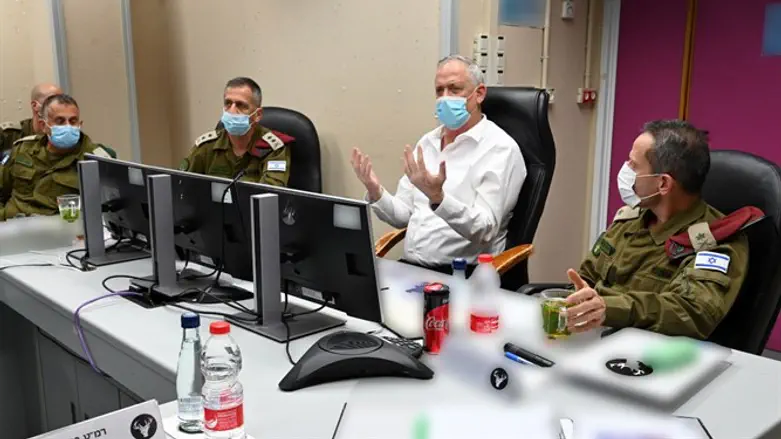
The deputy head of the Hezbollah terrorist organization, Naim Qassem, addressed recent security tensions with Israel this evening (Sunday) on the Lebanese channel Al Mayadeen TV.
[We] have decided not to announce what we will do in response to the killing of the organization's activist in Damascus, Ali Kamel Mohsen Jawad. Let Israel think what it wants. What will come will come," Qassem said. "The policy of deterrence with Israel is still there."
On Saturday, Israel sent a message to the Hezbollah terror group, saying that it did not intend to kill a Hezbollah official in a recent attack on Damascus reported to have been carried out by the IDF, Al Mayadeen TV reported.
On Friday evening, IDF combat helicopters attacked Syrian army targets, the IDF confirmed. The strike came as a response to earlier fire from Syria towards the Golan Heights.
“The IDF considers the Syrian regime responsible for the shooting, will continue to act resolutely and will respond forcefully to any violation of Israeli sovereignty,” the statement concluded.
On Monday night, Syria's official Sana news agency reported that Israeli aircraft attempted an airstrike in Damascus, but were thwarted by the country's air defense system. At the time, the Syrian army announced that seven people had been killed in the attack attributed to Israel.
Meanwhile, the IDF reported that its drone had fallen in Lebanese territory in the course of an IDF operation on the Lebanese border. An IDF spokesperson said there was no fear of information being extracted from the drone and passed on to hostile elements.
In recent days, the IDF has maintained high alert along the northern border, on the assumption that Hezbollah will seek revenge for the death of the organization's operative. Prime Minister Netanyahu asked government ministers to refrain from commenting on the issue on Sunday.
Defense Minister Benny Gantz toured the Northern Command Sunday, conducting a situational assessment with the participation of Chief of Staff Lt. Gen. Aviv Kochavi, Head of the Northern Command Maj. Gen. Amir Baram, and Head of the Intelligence Directorate Maj. Gen. Tamir Heiman.
At the end of the assessment, Gantz said: "I came to closely examine the IDF's preparations at a time of [increased] tensions. I was very impressed by the depth of the analysis, and the level of preparation of IDF forces in the Northern Command."
"The State of Israel has no interests in Syria or Lebanon, except for our security concerns, and we will continue guarding these, including preventing Iran from gaining a foothold in those countries, not allowing it to transfer advanced weapons and preventing the [Islamic Republic] from establishing accurate armed systems anywhere in the region, whether in Syria or Lebanon." .
According to Gantz, "The situation in Lebanon and Syria is not good, not economically, not in terms of the coronavirus, and not when it comes to their infrastructure."
"I remind both Lebanon and Syria that they are responsible for what happens within their territory. The State of Israel will demand this responsibility," he asserted.
"We are not looking for unnecessary escalations, but whoever tests us will meet a very strong response that I hope we will not have to use," Gantz added.